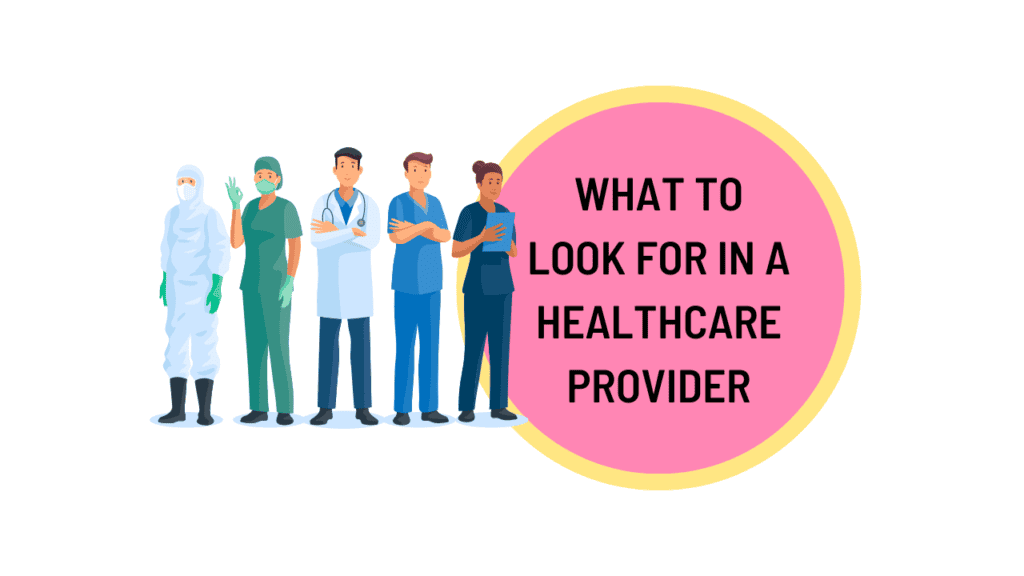
As a patient, it’s important to be able to rely on the healthcare professionals we entrust with our well-being. But what exactly makes a healthcare provider stand out as exceptional? Here, we’ll be exploring the qualities that set the best healthcare providers apart from the rest.
Whether you’re a patient seeking a new healthcare provider or a healthcare professional looking to improve your practice, this article will provide valuable insights and guidance. Without further ado, here are the top 10 qualities of the best healthcare providers. 🙂
Note: In this article, the term “healthcare provider” or “provider” refers to an individual that provides medical or healthcare services. This includes healthcare professionals like physicians, PAs, nurses, PTs, chiropractors, therapists, etc.
Table of Contents
1. Knowledge and Expertise

The most fundamental quality of a good healthcare provider is having knowledge and expertise. Education, training, and experience allow a provider to make informed decisions about the care of their patients, effectively providing the most appropriate treatment based on evidence-based guidelines.
A provider who is knowledgeable about a wide range of medical conditions and treatments is able to identify and diagnose medical problems accurately and develop effective treatment plans. This can help to ensure that patients receive the right care at the right time, which can lead to better outcomes.
Expertise is also important because it allows providers to be confident in their ability to provide high-quality care. When a provider is knowledgeable and expert in their field, they’re able to handle complex cases and make difficult decisions with confidence. This can provide reassurance to their patients and improve the overall quality of care.
Overall, knowledge and expertise are important for a great healthcare provider because they’re essential for providing the best possible care to their patients and for building trust and confidence in the healthcare system.
2. Attention to Detail

Attention to detail is another important quality that competent healthcare providers display. When providers are thorough, they’re able to carefully review and consider all relevant information, which ultimately helps to make more accurate diagnoses and develop more effective treatment plans.
Being detail-oriented also allows healthcare providers to identify and address any potential issues that may arise during treatment (e.g. potential side effects of medications or possible complications). Moreover, by being meticulous in their approach to patient care, providers are more likely to be able to prevent mistakes or errors that could have serious consequences.
3. Empathy

Empathy is a great quality for anyone to have but especially healthcare providers, as it helps them to understand and relate to the feelings and experiences of their patients. When a provider is able to show empathy, it helps build trust and rapport with patients, which often leads to better communication and health outcomes.
Empathy is also important because it allows providers to see their patients as more than just a collection of symptoms and diagnoses. By understanding their patients’ emotions, providers can provide more personalized and compassionate care that takes into account the whole person, not just their physical health.
In addition, empathy can help doctors to better understand the social and psychological factors that may be impacting their patients’ health, such as stress, anxiety, or social isolation. By considering these factors, doctors can provide more holistic and comprehensive care that addresses the root causes of illness, rather than just the symptoms.
Simply put, empathy is an essential quality for healthcare providers because it allows them to connect with their patients on a deeper level and ultimately provide more compassionate and effective care.
4. Communication Skills

Strong communication skills are also essential. Effective communication enables healthcare professionals to clearly convey important information to their patients, such as diagnoses, treatment plans, and potential risks and benefits. Providers are also able to listen to their patients’ concerns and questions and address any misunderstandings or misperceptions.
Another reason why good communication skills are important is because they help build provider-patient trust. When a patient feels that the provider is truly listening to them, the patient is more likely to follow treatment plans and feel confident in the care they are receiving.
In addition, when a provider is a good communicator, they’re able to work more effectively with other healthcare professionals, such as nurses, pharmacists, and specialists. This means that patients ultimately receive better care.
5. Patience

Another important trait that makes a healthcare provider stand out is patience. This lets a patient know that they matter as an individual, which helps build trust. As a result, a patient will feel more comfortable opening up, allowing the provider to make more accurate assessments and give the best treatment recommendations.
Overall, showing patients that you’re willing to listen to their concerns and answer their questions is invaluable as a healthcare provider. When a provider takes the time to understand a patient’s perspective, needs, and unique situation, greater receptiveness, more personalized treatment, and overall better care take place.
6. Adaptability

In the healthcare space, adaptability is an important characteristic for providers to possess because it allows them to respond effectively to new situations and challenges. The field of medicine is constantly evolving, and – with more information and experience – providers need to be able to adapt their practice in order to provide the best possible care to their patients.
Adaptability is also important because it allows providers to be flexible and open to new ideas. Being able to consider different ideas and make adjustments based on the individual needs and circumstances of each patient is far superior to taking a rigid approach to patient care, as this practice increases the likelihood of misdiagnosis and inadequate or improper treatment.
In addition, adaptability enables healthcare providers to work effectively in a variety of settings. In some cases, a provider may need to adapt to working in new or unfamiliar environments. By being adaptable, providers can respond effectively to these new challenges and provide the best possible care to their patients.
Finally, while having knowledge and experience helps a lot, being adaptable – and feeling comfortable practicing in this manner – is a trait that must be actively developed.
7. Leadership Skills

The role of any healthcare provider comes with a great deal of responsibility, and the care of every patient requires a team. Thus, it’s crucial for every provider to demonstrate strong leadership skills, as they allow the provider to make sound medical decisions and effectively lead a team.
Providers who display effective leadership skills are decisive and can take charge in situations where quick and effective action is needed. For example, in an emergency situation, a doctor who is able to lead and make quick decisions can help save lives.
Leadership skills also work to guide and motivate medical team members. By being an effective and respectable leader, a provider creates a positive and collaborative work environment, which translates to better teamwork and patient outcomes.
8. Humility

Even with extensive schooling and training, it’s still important for a provider to show humility. Humility allows a provider to be more open to new ideas and approaches, as well as acknowledge their own limitations and limitations of the field.
For starters, being humble allows providers to be more compassionate and understanding towards their patients. This can help to build provider-patient rapport and allow more personalized and effective care to take place.
Humility is also important because it allows providers be more open to feedback and learn from their mistakes. By being humble, providers are able to self-reflect and admit when they are wrong or when they need to improve, which can help them to grow and develop as healthcare professionals.
Overall, humility is an important quality for healthcare providers to exhibit because it allows them to be more open to new ideas and approaches, see things from their patients’ perspectives, learn from their mistakes, and continue to improve as healthcare professionals.
9. Professionalism

While subjective communication factors shouldn’t have an effect on patient care, the reality is that they often do. Whether consciously or subconsciously, interactions and perceptions always have the potential of impacting patient receptiveness and outcomes. Therefore, it’s vital that a healthcare provider demonstrate good bedside manner and professionalism.
When a provider is professional in their conduct and appearance, they’re able to establish and maintain the trust and confidence of their patients, which is essential for effective patient care. Professionalism is also important because it helps to ensure that providers adhere to ethical and legal standards of practice.
Ultimately, by being professional, healthcare providers are able to act with integrity and respect the rights and dignity of their patients.
10. Commitment to Continuing Education

Last but certainly not least is commitment to continuing education. The healthcare field goes hand-in-hand with lifelong learning, since medicine is constantly evolving as new data is collected and discoveries are made. It’s important for providers to stay informed about new treatments, technologies, and best practices in order to provide the most effective care to their patients.
Continuing education also allows healthcare providers to stay current with changes to laws, regulations, and professional standards. By staying informed about these changes, providers can ensure that they’re practicing in compliance with these standards.
Finally, continuing education is important because it allows providers to stay engaged and motivated in their work. Any job can become stagnant over time, but by continuing to learn and grow, healthcare professionals can maintain a sense of purpose and fulfillment throughout their career.
Conclusion
From empathy and compassion to clinical expertise and communication skills, these are just some of the characteristics that are essential for delivering top-quality care. You’ll find all of these qualities and traits exhibited by highly skilled and competent medical professionals. Just remember – you shouldn’t settle when it comes your healthcare providers (or what kind of provider you want to become).
That wraps it up for this article! I hope that you found it helpful. For more guides on similar topics, take a look at some of my other articles discussing how to find the right healthcare provider . I’ll see you in the next one. Until then, stay healthy and keep learning. 😀
. I’ll see you in the next one. Until then, stay healthy and keep learning. 😀
